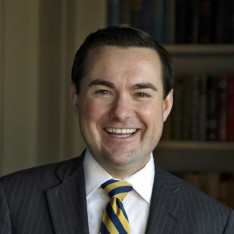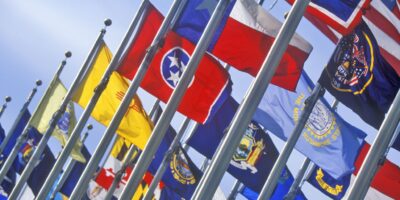Special Note from Edward Stringham

These are extremely stressful times for the world economy, particularly financial markets, which have fallen into bear-market territory. The possibility of recession, however temporary, is upon us. Everyone blames the prospect of pandemic disease. That’s a correct diagnosis as regards the precipitating factor. But economics and finance are highly complex. Some people think that the markets were due for a correction in any case, and there might be some truth in that.
What’s worried me over the last several years is how policy makers are so willing to play so loose with the rule of law, both domestically and internationally. Perhaps it seems that government can get away with slapping 10% or even 25% tariffs on imports, disrupting supply chains around the world and taxing consumers so unnecessarily. It might raise money for the government for a while but it also introduces instability and vulnerabilities.
I could list one thousand other items that make the economy vulnerable: exploding debt, excess regulations, high taxes, tethered banks and financial markets, restrictions on travel, sanctions, wage controls, mandated employment conditions, and so on. Each of these interventions weakens economic structures, often in ways that are not immediately visible.
Something like a pandemic virus can reveal problems that had previously been unseen.
The good news is that this problem will pass in time, but a sound strategy right now, in addition to individual caution, is to free the markets to make the world economy less vulnerable to shocks such as this one.
What we absolutely should not do is make matters worse through massive coercive measures that panic investors, spread public hysteria, and prohibit people from making the best possible choices for their lives. The old truth pertains in normal times as well as in crisis times: people in their own lives are better managers than government-employed authoritarians who bear no liability for the cost of their decisions.
Another way not to deal with this is through further artificial disruption. The Federal Reserve will not save us. Nor will huge spending packages, much less martial law. AIER cannot and will not shrink from explaining these essential truths.
We should remember that the American Institute for Economic Research was founded in the midst of crises. It was 1933. The banks were forcibly closed by central edict. Government demanded that everyone turn in gold to the banks. Then the new chief executive of the US devalued the dollar, voiding millions of contracts and creating chaos. What was the rationale? In Washington, they were just making things up.
Edward Harwood saw the need for calm, serious research, rational decision-making, and truth telling. He was nearly alone in this. His bravery in the face of crisis was singular. It made the difference. Harwood gave the American people an alternative source of analysis at a time when neither government nor academia could be trusted. The government tried to shut him down, not once but three times. He prevailed.
AIER is following that model today in the midst of crisis. Notice how little we are hearing about the Constitution, the Bill of Rights, sound science, and rational action. Most of the loudest voices out there are fueling panic and it is working. Markets are responding accordingly.
Therefore, AIER is providing an alternative with ongoing data reporting and editorials and research that have lifted our website to the largest traffic in our history by far. Our scholars and writers make daily media appearances (you will see more in the next 48 hours).
Everyone at AIER is working extra hours to get the word out about the importance of markets and essential human rights, while maintaining an objective stance without an ideological agenda. Our goal is to be a trustworthy source of information and analysis in times when others are panicking.
Consider the pieces we’ve posted in the last days (some of which have been read on air by famous commentators who reach tens of millions). In fact, we’ve created a special tag you can use to keep up with all our analysis: https://www.aier.org/pertinent_tags/crisis/
More is forthcoming. Our pledge to you is to continue our work regardless, without fear or favor, with an eye to our mission, and a focus on the task. I’ve been told over the last several days that Important people and institutions on Wall Street and around the country are looking to AIER for leadership.
Times like this force fundamental questions of every institution. In the case of AIER, we are reminded once again why Edward Harwood founded an institution that is among the most valuable in the world today. It will continue to be, in good times and bad.
Sincerely,
Edward Stringham
President, American Institute for Economic Research










